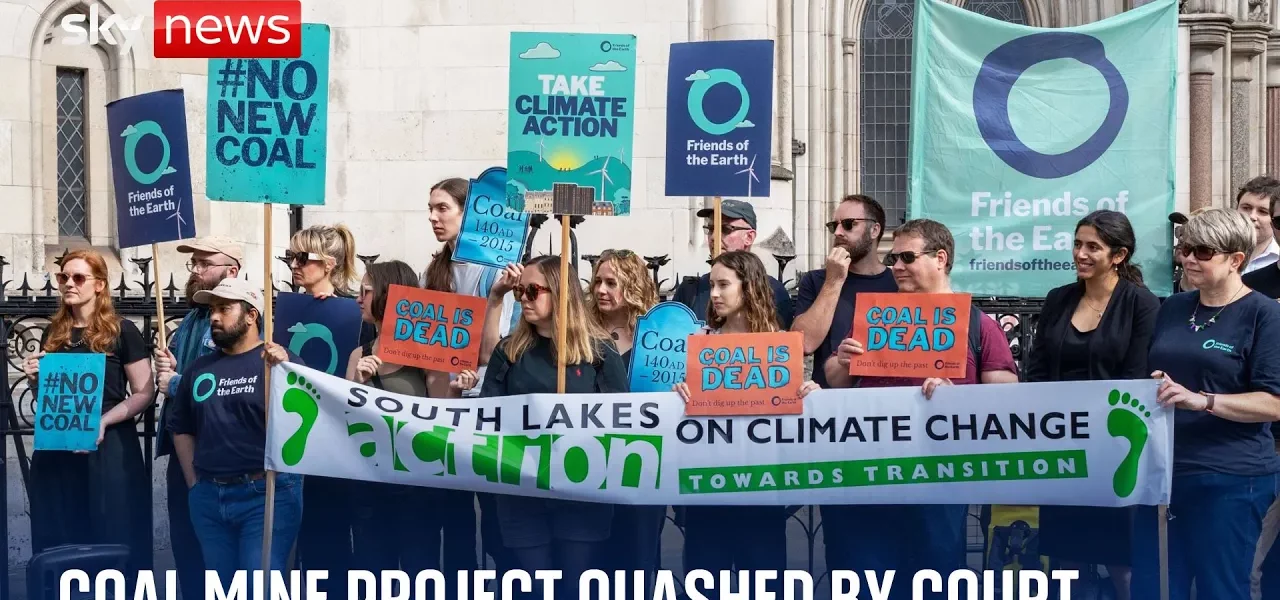High Court Quashes Planning Permission for UK’s First Coal Mine in 30 Years

This article delves into the recent landmark ruling by the High Court, which has significant implications for fossil fuel projects in the UK, particularly the controversial West Cumbria coal mine. We explore the decision’s background, its impact on environmental advocacy, and the future of fossil fuel projects in light of climate change concerns.
Introduction
In a groundbreaking ruling, the High Court has quashed the planning permission for what would have been the first new coal mine in the UK in three decades. This decision marks a pivotal moment in the ongoing debate surrounding fossil fuel projects, their environmental impact, and the UK’s role in leading the fight against climate change. With the mine poised to extract 60 million tons of coal, the implications of this ruling extend far beyond local communities, challenging the very foundation of fossil fuel reliance in the UK.
The Court’s Decision
The High Court’s decision is rooted in a recent Supreme Court ruling which mandated that fossil fuel projects must consider not only the emissions generated during extraction but also the emissions produced when the fossil fuels are ultimately burned. This comprehensive approach to emissions assessment proved pivotal in the court’s ruling against the West Cumbria coal mine.
Background on the West Cumbria Coal Mine
The proposed West Cumbria coal mine was a significant project aimed at producing coal for both domestic and international markets. However, the court found that the planning permission granted for this venture was unlawful due to its failure to account for the extensive emissions resulting from the combustion of coal.
Legal Context and Implications
- The ruling sets a precedent for future fossil fuel projects in the UK.
- It raises questions about the sustainability of current energy policies.
- Other fossil fuel projects, including oil and gas initiatives in the North Sea, may face similar scrutiny.
Government’s Response
Following the court’s ruling, the UK government, which had previously backed the coal mine, opted to withdraw its legal challenge. The new administration, led by the Labour Party, has signaled a shift in focus towards renewable energy. This decision reflects a growing recognition of the urgent need to address climate change while balancing economic needs.
Impact on Government Policy
- Withdrawal from fossil fuel projects could align with international climate commitments.
- The government faces pressure to foster economic growth during the transition to renewable energy.
- Stakeholders are demanding clarity on future energy policies and investments in green technology.
Environmental Advocacy and Public Reaction
Environmental groups, notably Friends of the Earth, have hailed the court’s decision as a major victory for climate advocacy. Victoria Marson, a prominent campaigner, emphasized that this ruling not only protects local ecosystems but positions the UK as a potential leader in renewable energy.
The Role of Advocacy Groups
Campaigns against the coal mine highlighted the following key points:
- The environmental risks associated with coal mining.
- The necessity for a transition to cleaner energy sources.
- The importance of holding governments accountable for climate commitments.
Economic Considerations
While the court’s decision is celebrated by environmentalists, it raises questions about the economic implications for the UK. With the decline of coal use in steel production and the shift towards sustainable alternatives, the government must navigate the transition carefully.
Assessing Economic Impact
Key considerations include:
- The potential loss of jobs in traditional fossil fuel industries.
- The need for investment in renewable energy sectors.
- Strategic planning to ensure energy security during the transition.
Conclusion
The High Court’s decision to quash the planning permission for the West Cumbria coal mine represents a significant step forward for climate advocacy and environmental protection in the UK. As the government grapples with the implications of this ruling, the focus must shift towards embracing renewable energy alternatives. This is not only crucial for meeting climate targets but also for positioning the UK as a leader in the global transition to sustainable energy. Stakeholders must remain engaged in the dialogue surrounding energy policy to ensure a balanced approach that addresses both environmental and economic needs. For further insights, explore our articles on renewable energy initiatives and the challenges facing fossil fuel projects.
“`




